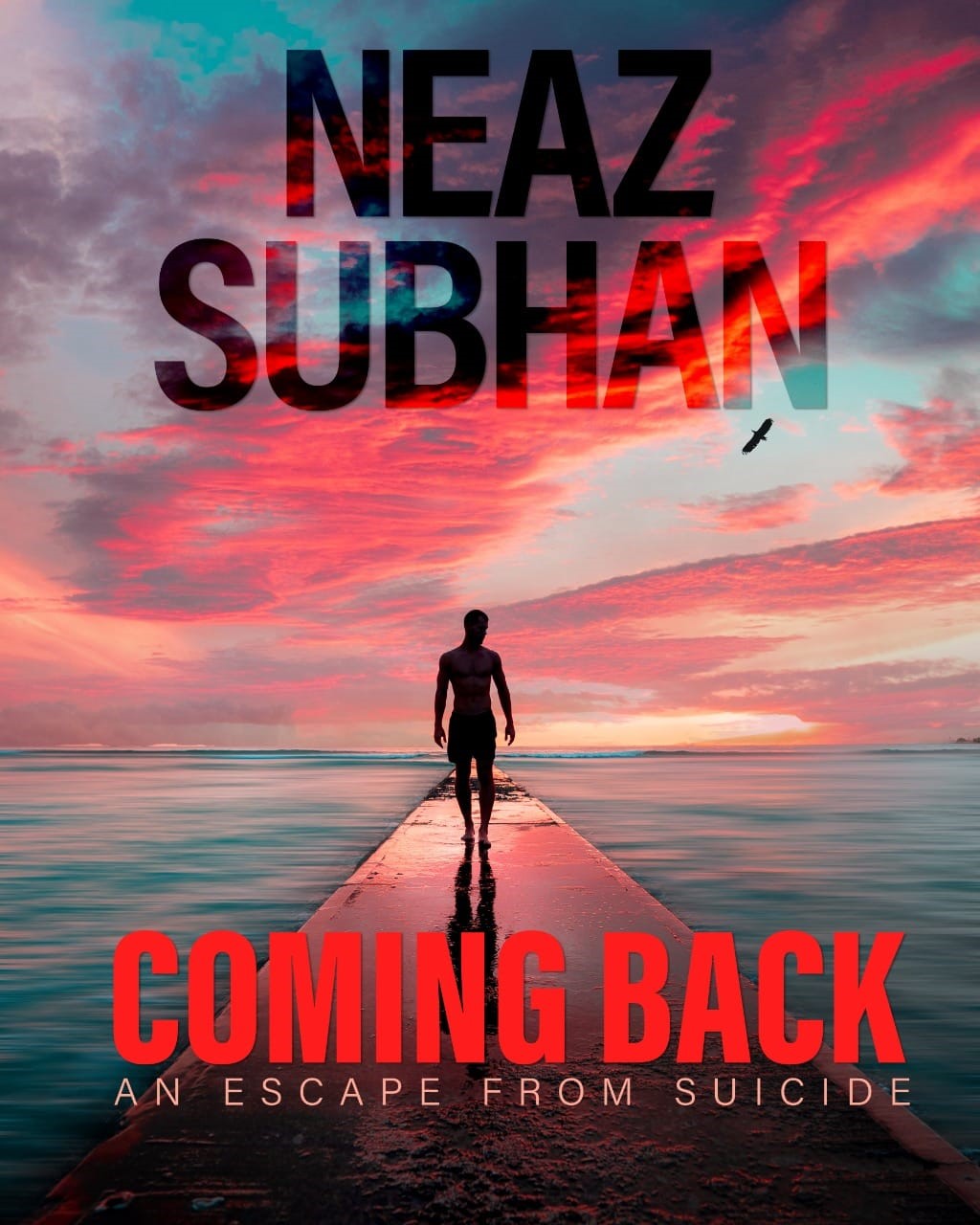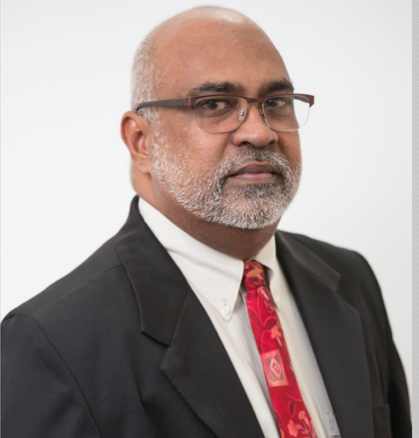After years of suffering silently with chronic depression and four failed attempts to end his own life, Neaz Subhan has written a book about his experiences with the hope of helping others to seek the help they need.
In a recent interview with Sunday Stabroek, Subhan, currently the Deputy CEO at NCN, said after much consideration, he took a decision to write the 184-page book, which is titled “Coming Back – An Escape from Suicide.”
The book highlights his personal experiences, how he overcome his battles with depression and advice to persons who are grappling with mental health issues.

He said it took him two years to complete writing the book.
He wrote the book during his road to recovery after he was advised that writing about his experience might help. The decision, he noted, is one which he does not regret. “I took up the challenge…It wasn’t easy but eventually because of my passion for writing I say let me take up this challenge. I am glad I did,” Subhan said.
According to Subhan, his chronic depression lasted for about four years. Subhan described the period as the “darkest point” of his life.
“A phase that I felt that there was no return….My mind was made up that I did not want to be around,” he explained.
Subhan related to Sunday Stabroek that while he was battling with chronic depression, he started to exhibit suicidal tendencies. To be specific, he said, he attempt to end his life four times but survived every episode.
“I don’t know if they failed because I did not do it right… At some point, I keep asking myself, ‘Why am I not successful?’ I did think… that maybe there are some other forces [that] had a different plans for me,” he stated.
At some point, Subhan said, he started wondering how his story would be viewed by society if any of his attempts were successful.
“I started to think about that because I felt that people may not know the real truth. They might put all kind of spins to it. I have young kids, I have a family. What stigma would be attached to them? And by thinking like that, I think then it came to me that maybe something was wrong,” Subhan added.
Prior to this, he was in denial that he was even mentally ill. “I denied all the time that something was wrong. I argued with doctors…and they kept telling me that’s mental health but I said no it cannot be. So I tried to deny all of that, every single thing I tried to deny,” he said.
It was a conversation with a close friend that made Subhan realise that he had a problem that required professional help.
He had a conversation with a friend, who subsequently telephoned him and voiced his concern that something did not seem right with him.
“I broke down and I confided… I didn’t tell him all the details but I just told him I think I have an issue,” Subhan related.
The friend talked to a few professionals, who offered to help Subhan, who said recovery was possible after months of daily sessions.
“…As I got more conscious about what the consequences could have been, I said no, let me talk to somebody now,” he said.
“I think that started to bring me to a different realization. At the beginning, of course, I wasn’t interested. I felt I just had to go through the motions because when you are in that place nothing matters to you. Life, work, nothing matters. You just want to die,” Subhan added.
‘Behind the smile’
The most difficult challenges for Subhan was having to hide his pain behind a smile, fearing the stigma attached if he only spoke about what was happening with him. “It’s a painful thing because I had to go to work, I had to talk to people, I had to put on a fake smile. The weight of putting on a smile—that is the hardest thing to do in a situation like that. To put on a smile so people could not know what you were suffering from,” he said.
He said persons not only fear being discriminated against if they speak out, but are usually afraid of the stigma that their families and young children might have to endure.
“Don’t be like me. This is my story… Come out, stretch your hand. People see us but they don’t know what is going on behind that smile and the smile is the most deceiving thing there is. We don’t know and simply because people are afraid to speak about it. They are afraid of being stigmatised and not only them, their families,” Subhan explained.
He is encouraging persons who are suffering silently to open up and speak about their experiences in an effort to get the help needed.
“Don’t give up, don’t lose hope. It is not the end,” Subhan said.
Subhan is currently working towards getting the book published online. In a few weeks, he said, it should be available for purchase in stores.
If you or someone you know is having thoughts of committing suicide, you can seek help from the Inter-Agency Suicide Prevention Helpline (via 223-0818, 223-0009, 223-0001, 600-7896 or 623-4444 or through its Facebook page). The Ministry of Health has also launched a 24-hour hotline, 655-safe (655–7233, to provide counselling services to people suffering from mental illness.



